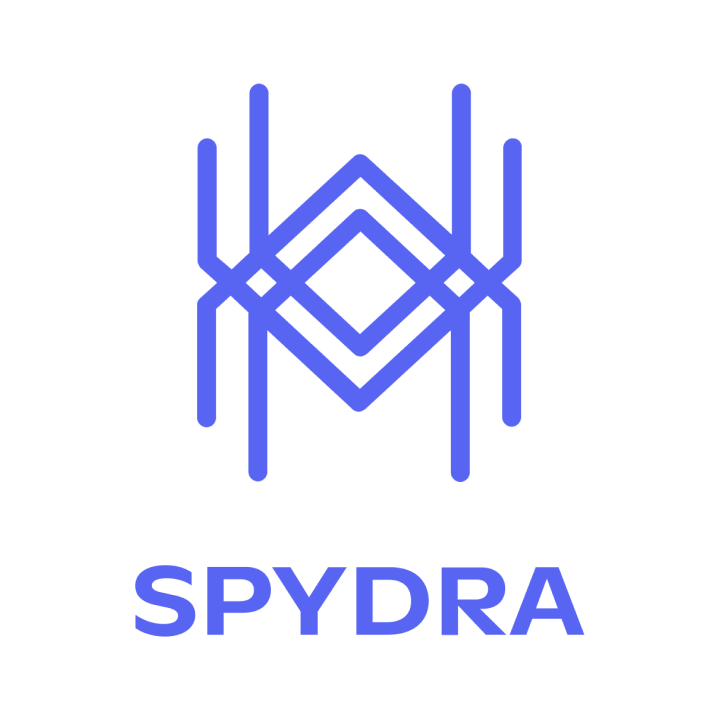How Spydra's Graph Query Language Simplifies Access and Boosts Efficiency
 Pravin
Pravin
Efficient data retrieval remains a significant challenge. As of 2022, the global blockchain market was valued at approximately $7.4 billion and is projected to surpass $94 billion by 2027, reflecting a compound annual growth rate (CAGR) of 66.2%. This exponential growth underscores the critical need for robust data management solutions. Spydra's Graph Query Language (GraphQL) emerges as a pivotal tool, streamlining access to complex blockchain data and enhancing operational efficiency.
Understanding the Challenges in Blockchain Data Retrieval
Blockchain's decentralized nature offers unparalleled security and transparency. However, these advantages come with inherent complexities in data retrieval:
Data Accessibility: Traditional blockchain systems often lack intuitive querying capabilities, making data extraction cumbersome.
Scalability: As blockchain networks expand, the volume of stored data increases, leading to potential scalability issues that can hinder performance.
Efficiency: Retrieving specific data points can be time-consuming, impacting applications that require real-time information.
Introducing Spydra's Graph Query Language
To address these challenges, Spydra integrates GraphQL into its platform, offering a dynamic approach to blockchain data interaction:
Versatile Querying: GraphQL enables both simple and complex queries, allowing users to retrieve precisely the data they need without over-fetching.
Nested and Paginated Queries: Users can execute nested queries and paginate results, facilitating efficient data handling even in extensive datasets.
Enhanced Performance: By controlling the data received, applications utilizing Spydra's GraphQL API experience improved speed and efficiency, directly translating to a superior user experience.
The Role of GraphQL in Asset Tokenization
Asset Tokenization—the process of converting physical assets into digital tokens on a blockchain—benefits significantly from Spydra's GraphQL capabilities:
Efficient Data Handling: Tokenized assets often require detailed metadata and transaction histories. GraphQL's precise queries ensure efficient data retrieval, enhancing the management of tokenized assets.
Improved User Experience: With GraphQL, users can obtain comprehensive asset information through a single query, streamlining interactions and boosting satisfaction.
Scalability: GraphQL's flexibility supports the scaling of tokenization platforms by accommodating growing data demands without compromising performance.
Spydra's Integration with Hyperledger Fabric
Spydra leverages Hyperledger Fabric, an open-source enterprise-grade distributed ledger framework, as the foundation for its platform:
Modular Architecture: Hyperledger Fabric's modular design offers flexibility and security, aligning with Spydra's objectives for robust blockchain solutions.
Inbuilt GraphQL Support: Spydra's prebuilt Hyperledger Fabric applications come with integrated GraphQL support, simplifying the development process and enhancing data retrieval capabilities.
Enhancing Blockchain Solutions Through Consultancy
Beyond technological offerings, Spydra provides comprehensive blockchain solution consultancy services:
Enterprise Blockchain Consulting: Assisting businesses in unlocking the full potential of blockchain technology through tailored strategies and implementations.
Custom Solutions: Developing bespoke blockchain solutions that address specific industry challenges and objectives.
With the ever-increasing use of blockchain across industries—from finance and supply chain to healthcare and real estate—the need for specialized consultancy continues to grow. Companies require expert guidance to effectively implement blockchain and avoid common pitfalls.
Why GraphQL is the Future of Blockchain Queries
The combination of flexibility, efficiency, and developer-friendliness makes GraphQL the preferred choice for blockchain data retrieval:
Higher Query Accuracy: Instead of fetching entire blocks or unnecessary data, GraphQL retrieves only what’s required.
Real-Time Access: GraphQL’s structured approach enables real-time access to key blockchain data, essential for fast-moving industries.
Interoperability: As multi-chain applications become more popular, GraphQL enables seamless data interaction across different networks.
Case Studies and Impact Metrics
Recent implementations of Spydra’s Graph Query Language show impressive results:
Query Time Reduced by Up to 80% compared to traditional RESTful APIs.
50% Improvement in App Performance, especially in real-time blockchain data apps.
Over 65% Adoption Increase among companies involved in Asset Tokenization due to ease of access and control.
These metrics highlight the growing demand for efficient blockchain tools and consultancy services.
Conclusion
In the context of a rapidly expanding blockchain market, efficient data retrieval becomes paramount. Spydra's integration of GraphQL within its platform addresses critical challenges in data accessibility, scalability, and efficiency. By facilitating precise and complex queries, particularly in Asset Tokenization scenarios, Spydra not only enhances user experience but also positions itself as a leader in blockchain solution consultancy. As blockchain technology continues to evolve, tools like Spydra's GraphQL will be instrumental in unlocking its full potential.
Subscribe to my newsletter
Read articles from Pravin directly inside your inbox. Subscribe to the newsletter, and don't miss out.
Written by

Pravin
Pravin
Integrate Spydra’s easy-to-use APIs to tokenize your assets for more secure, transparent and reliable data exchange in supply chain, financing, cross-industry processes etc.